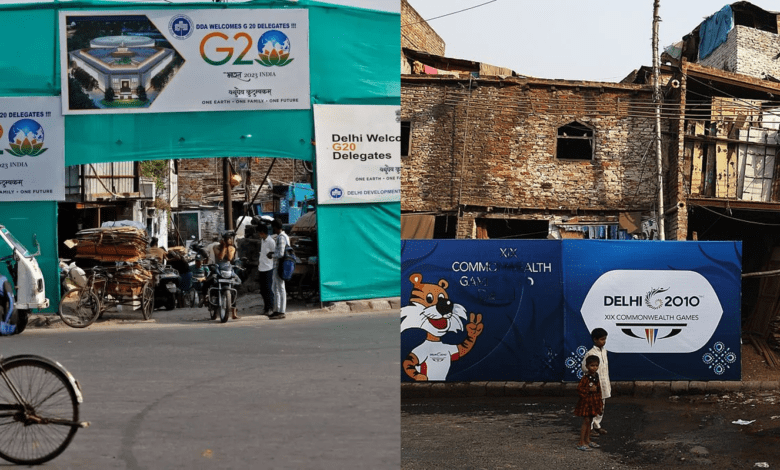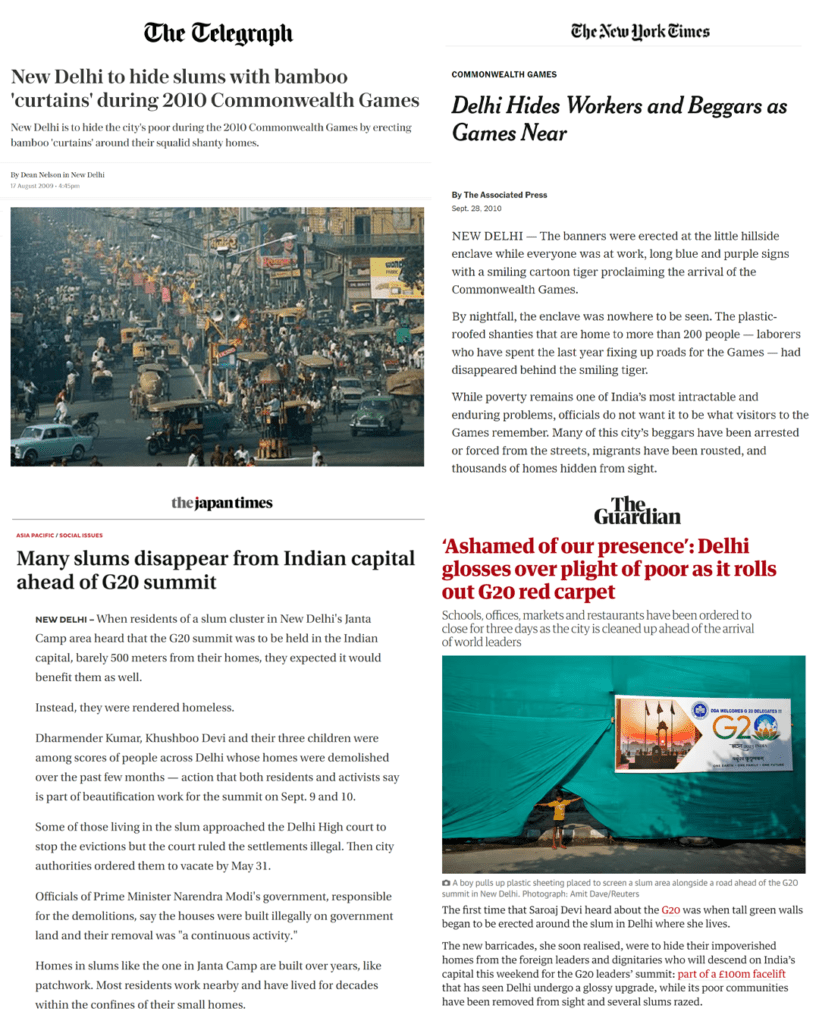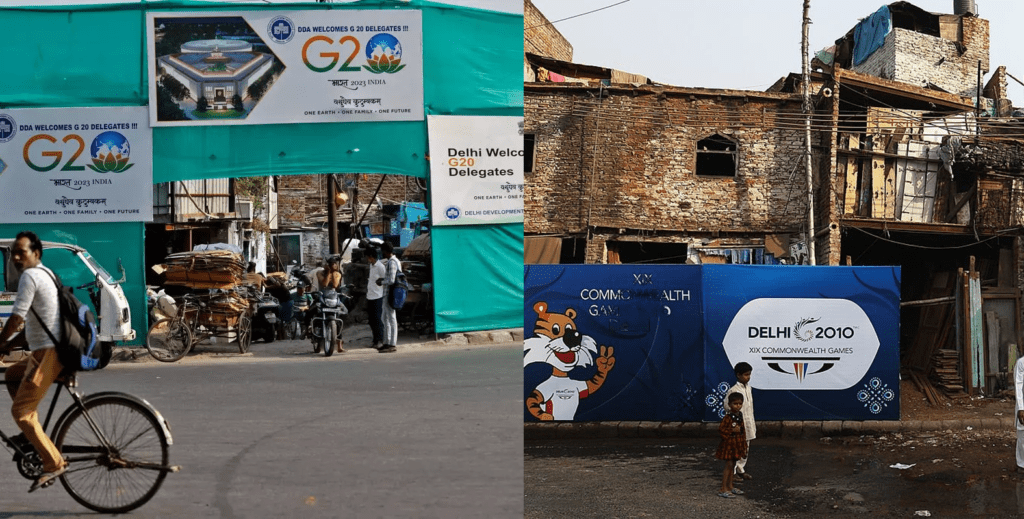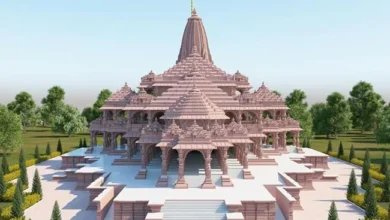2010‘s Commonwealth Games to 2023‘s G20 Summit: Indian govts love to hide poverty, strays from the world
Does hiding reality really make a difference or are we just fooling ourselves? Behind all the glitz and glamour of these global events, a stark contrast consistently emerged—the concerted effort to conceal poverty while playing host to the world.

What cannot be removed must be hidden, power holders of the nation have always believed in the same. Whether it’s this time for the G20 summit or looking back to 2010 during the Commonwealth Games, the pattern remains consistent.
The situation 13 years ago was no different. In 2010, as Delhi geared up to present its meticulously painted facade to the world during the Commonwealth Games, the city’s grim reality was concealed behind the flimsy facades of bamboo screens.
Organisers of the games were acutely aware that the din and filth in parts of Indian capital could shock visitors. So, along with the construction of new sporting facilities, roads, flyovers, metro lines and an airport, dozens of long-standing slum communities built on public land, vacant lots, by railways or along rubbish-strewn stream beds were destroyed; Remaining slum areas were veiled behind hoardings, out of sight from the prying eyes of onlookers.
Governments irrespective of political parties, have always believed that uprooting all the slums and less visually pleasing sights is not a realistic solution and instead of finding ways to address the situation in the long run, it has been a practice to screen all such areas using sheds, boards or curtains.

The disheartening story from 2010 to 2023 continues to echo the same narrative: homeless individuals who slept on pavements just yards away from opulent south Delhi residences, in proximity to the Games venues, were inexplicably made to vanish.
Back in 2010, the Delhi government embarked on a highly contentious initiative with the explicit aim of eradicating beggars from the city. They even employed the force of the anti-beggary law to achieve this goal.

Fast forward to 2023, as Delhi prepared itself for the G20 summit’s grandeur, it seemed that the city’s response remained consistent – concealing its slums and underprivileged behind the façade of green curtains. This persistent pattern raises questions about the enduring disparities that exist within the city and the effectiveness of such cover-ups.

Behind all the glitz and glamour of these global events, a stark contrast consistently emerged—the concerted effort to conceal poverty while playing host to the world.
The question that lingers is why the term “beautification” has consistently been synonymous with efforts to camouflage poverty? While there is an undeniable need to enhance the city’s infrastructure, it often appears that the government’s approach prioritizes aesthetics over tackling the root causes of poverty.
Whether it was during the Commonwealth Games in 2010, Donald Trump’s visit to India, or the upcoming 2023 G20 Summit in Delhi, these events invariably brought into focus the intricate relationship between showcasing a nation’s progress and addressing the underlying problems.
No doubt, while these events might have been excessively successful in highlighting India’s capabilities as a host, they have time and again underscored the urgent need for a more balanced and inclusive approach to development. It was a wake-up call for India to address its poverty and inequality issues head-on rather than trying to hide them behind a facade of prosperity.
Please, also have a look into : Australia’s Victoria withdraws as host of 2026 Commonwealth Games due to escalating costs



